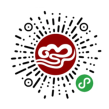Nasopharyngeal cancer risk factors that cannot be underestimated
- Categories:News Center
- Time of issue:2022-08-23 11:50
- Views:
Nasopharyngeal cancer risk factors that cannot be underestimated
- Categories:News Center
- Time of issue:2022-08-23 11:50
- Views:
In 2018, Malaysia's badminton player Lee Chong Wei, a three-time Olympic silver medalist and former world number one, announced his retirement, as prolonged health issues after battling nasopharyngeal cancer dashed his hopes of a comeback. In 2020, the famous Hong Kong director Chen Musheng passed away from nasopharyngeal cancer at the age of 58...
Compared with common cancers such as lung and liver cancer, many people may not have heard of nasopharyngeal cancer.
However, the incidence of nasopharyngeal carcinoma in China is very high and presents certain geographical characteristics.
So what are the areas with a high incidence of nasopharyngeal carcinoma? What are the early symptoms of nasopharyngeal carcinoma? Let's find out today.
Yun Xu, an attending physician from the Department of Radiotherapy of Fujian Cancer Hospital, shared online "Nasopharyngeal Cancer that should not be underestimated".

1. The incidence of nasopharyngeal carcinoma is high in southern China, especially in Guangdong.
The epidemiology of nasopharyngeal carcinoma is characterized by its unique geographic distribution.
The incidence of nasopharyngeal carcinoma is high in Guangdong, Guangxi, Fujian, Hong Kong and Singapore. Especially in Guangdong, nasopharyngeal carcinoma is even called Guangdong cancer. People in Guangdong are 50 to 80 times more likely to develop nasopharyngeal carcinoma than those in other low-incidence areas.
Why do these areas become high-incidence areas of nasopharyngeal carcinoma?
The current mainstream view is that nasopharyngeal cancer is mainly related to multiple factors such as diet, genetics, and EB virus infection.
1) The influence of eating habits
In the 1970s and 1980s, food preservation methods in most coastal areas were unhealthy. In particular, the residents of Guangdong and Guangxi like to eat salted fish and preserved meat. Pickled foods produce nitrosamines in the stomach, which are a high risk factor for cancer.


2) Genetic correlation
NPC is also known to cluster in families in diverse populations, and many patients with nasopharyngeal cancer have a family history of cancer. In the hospital, it is common to see father and son seeing a doctor together or siblings are sick.
3) Virus infection
Epstein Barr virus (EBV) is a very common virus that can increase the risk of nasopharyngeal cancer. The study found that almost 100% of patients with nasopharyngeal carcinoma were positive for EBV infection. But it does not mean that EBV-positive cancer is nasopharyngeal cancer. More importantly, whether it is nasopharyngeal carcinoma depends on the viral DNA.
In addition, genetic susceptibility genes and bad habits in daily life, such as smoking and drinking, are closely related to the occurrence of nasopharyngeal cancer.
1. Are rhinitis and sinusitis related to nasopharyngeal cancer?
Are patients with rhinitis or sinusitis more likely to develop nasopharyngeal cancer?
There is currently no evidence that allergic rhinitis or sinusitis is directly associated with nasopharyngeal cancer. But if you have symptoms such as rhinitis, sinusitis, and headaches repeatedly, you should pay attention.
What are the early symptoms of nasopharyngeal cancer?
Due to the complex adjacent structures of the nasopharynx, when the tumor invades the corresponding structures and nerves, it will cause complex and diverse clinical symptoms. The main early clinical symptoms include:
1) blood in nasal discharge and nosebleeds
2) Nasal congestion
3) Tinnitus: unilateral transition to bilateral
4) Hearing loss
5) Headache: Unilateral persistent pain
6) Seeing things ghosting
7) Facial numbness
But it does not mean that the above symptoms mean nasopharyngeal cancer. If the above symptoms persist, repeat, and cannot be relieved, patients can go to the hospital for a blood test for EB virus or an electronic ear, nose and throat examination.
In addition, regular screening is recommended for people with the following characteristics:
1) People with a family history of cancer are recommended to have an early examination.
2) People who live in a high-incidence area of nasopharyngeal cancer and who have the above seven symptoms which cannot be relieved for a long time are recommended to have regular examinations.
3. Treatment of nasopharyngeal carcinoma
Because most nasopharyngeal carcinomas are moderately sensitive to radiotherapy, radiotherapy is the treatment of choice for nasopharyngeal carcinoma.
There are four stages of nasopharyngeal cancer. The first and second stages belong to the early stage, and the current cure rate of the early stage can reach 90%.
Things to keep in mind after nasopharyngeal cancer surgery:
1) Regular review: review every 3 months for the first three years
2) Standardize nasopharyngeal irrigation: remove purulent secretions
3) Rehabilitation exercise: After radiotherapy, the neck is very hard and the mouth cannot be opened. After discharge, it is very important to do rehabilitation exercises as required. Especially, young people can be cured completely and live like normal people after strict rehabilitation training.
Interaction in the live broadcast room
1) In the past few days, I have suffered several times of nasal discharges stained with blood but without other symptoms. Should I go to the hospital for an examination?
If it's just one or two times of nasal discharges stained with blood, don't be too nervous. If you are worried, you can go to the hospital for an electronic nasopharyngoscopy.
2) I am a 20-year-old male patient with alternating nasal congestion and occasional tinnitus. After reading the symptoms of nasopharyngeal cancer online, I feel that I fit these descriptions very well. Doctor, is this normal?
The nasal cavity and the ear are connected to the Eustachian tube. If it is alternate nasal congestion, it should not be nasopharyngeal cancer. If you are worried, you can go to the hospital for an electronic nasopharyngoscopy.
Finally, how to prevent nasopharyngeal cancer? Start by changing your daily habits. Don't smoke, drink less, and eat less pickled food. Even if there are related discomfort symptoms, don't be too nervous, go to the hospital for a standard examination!


Search
GanoHerb Group
Headquarters Address: Building 9, Phase 1, Innovation Park, Haixi Park, Fuzhou High-tech Zone, Fuzhou City, Fujian Province, China
Healthline:400-8899-773 Hotline:18105908051
COPYRIGHT © GanoHerb Group 闽ICP备05002116号-10 Powered by:300.cn

官方公众号

Wechat Mall

Tmall

Jingdong Mall



